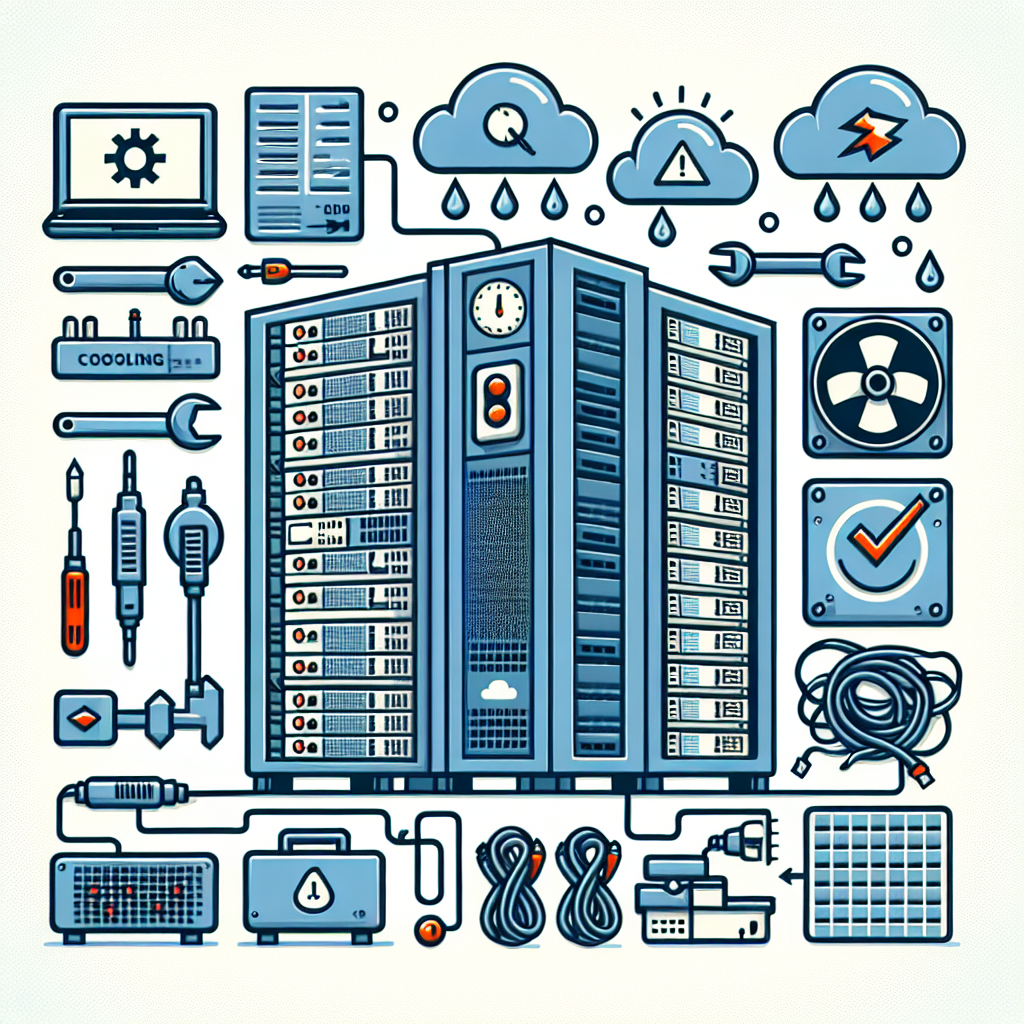Common Data Center Issues and How to Address Them Through Repair
Data centers are the backbone of modern businesses, providing the necessary infrastructure for storing, processing, and managing large amounts of data. However, like any complex system, data centers are prone to various issues that can disrupt operations and jeopardize the security and integrity of the stored data. In this article, we will discuss some common data center issues and how to address them through repair.
1. Cooling Problems
One of the most common issues in data centers is overheating due to inadequate cooling systems. Excessive heat can lead to hardware failures and data loss, so it is crucial to address cooling problems promptly. To repair cooling issues, data center operators should first check the airflow and ventilation systems to ensure proper circulation. They may also need to clean or replace air filters, install additional cooling units, or optimize the layout of server racks to improve heat dissipation.
2. Power Outages
Power outages can be catastrophic for a data center, causing downtime and potential data loss. To address power outage issues, data center operators should invest in backup power solutions such as uninterruptible power supply (UPS) systems and generators. Regular maintenance and testing of these backup systems are essential to ensure they will function properly during an outage. Additionally, implementing power monitoring tools can help identify and address power-related issues before they escalate.
3. Network Connectivity Problems
Network connectivity issues can disrupt communication between servers and clients, affecting the performance and reliability of a data center. To repair network connectivity problems, data center operators should conduct thorough troubleshooting to identify the root cause of the issue. This may involve checking network cables, routers, switches, and other networking equipment for faults or misconfigurations. Implementing redundancy in network infrastructure can also help minimize the impact of connectivity issues.
4. Data Loss and Corruption
Data loss and corruption can occur due to hardware failures, software bugs, human errors, or malicious attacks. To repair data loss and corruption issues, data center operators should regularly back up critical data to ensure it can be restored in case of an incident. Implementing data recovery solutions such as RAID (Redundant Array of Independent Disks) can also help protect against data loss by distributing data across multiple drives. In cases of data corruption, data center operators may need to use specialized tools and techniques to repair and recover the affected data.
5. Security Breaches
Security breaches are a significant concern for data centers, as they can result in unauthorized access, data theft, and other malicious activities. To address security breaches, data center operators should implement robust security measures such as firewalls, encryption, access controls, and intrusion detection systems. Regular security audits and penetration testing can help identify vulnerabilities and weaknesses that need to be addressed. In the event of a security breach, data center operators should promptly investigate the incident, mitigate the damage, and implement measures to prevent future breaches.
In conclusion, data center operators must be vigilant in monitoring and addressing common issues that can affect the performance, reliability, and security of their facilities. By implementing proactive maintenance, troubleshooting, and repair strategies, data center operators can minimize downtime, data loss, and security risks, ensuring the smooth operation of their data centers.


